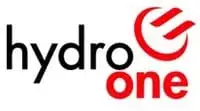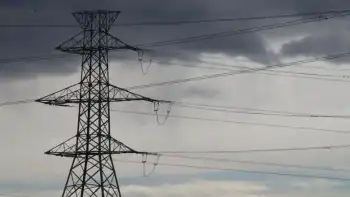Teck pitches coal stake to pension funds
By Globe and Mail
Arc Flash Training CSA Z462 - Electrical Safety Essentials
Our customized live online or in‑person group training can be delivered to your staff at your location.

- Live Online
- 6 hours Instructor-led
- Group Training Available
Quebec pension giant Caisse de dépôt et placement du Québec and Alberta Investment Management Corp. (AIMCo) are among the institutions that have been pitched a deal to buy as much as 20 per cent of the output from Teck's hard coking coal operations.
Analysts have estimated a 20-per-cent stake in Teck's coal business could be worth $1.2-billion to $1.8-billion.
The purchase would not be a direct investment in Teck's B.C. and Alberta coal mines. Rather, the pension funds would be sold notes or securities that would pay a set interest rate and offer exposure to any upside in the coal price.
In addition to the pension funds, Chinese state-owned mining companies including China Aluminum Corp. (Chinalco) and China Minmetals Corp. are said to be weighing a similar investment in Teck's coal business.
“[The notes] are kind of like preferred shares. If you don't have the guts to buy a coal company, you take out one of these and you get some exposure, but you have a downside floor,” said a source familiar with the matter.
Teck is struggling to reduce the enormous debt load it incurred from its top-of-the-market, $14-billion (Canadian) takeover of Fording Canadian Coal Trust last year.
Teck must begin paying down a $4-billion (US) term loan in April, and a bridge loan now worth $5.35-billion is due at the end of October.
The crash in commodity prices and reduced demand for metals has forced Teck to cut its work force and put assets such as its gold and oil sands properties up for sale to raise cash.
Chief executive officer Don Lindsay is in discussions with Teck's lenders to refinance the bridge loan. Sources said a deal to sell part of the coal operations would give Teck a better bargaining position with banks when it comes to negotiating lending terms.
In addition to the coal investment, the pension funds are also understood to be considering buying some of Teck's debt.
“Teck is talking to funds that know the company, or its assets,” said one investment banker close to the mining company. The Caisse owns about 17 per cent of Teck's powerful A-class shares, which give holders more votes than B-class shareholders. Teck's dual-class share structure allows the family of Teck chairman Norman Keevil and Japan's Sumitomo Metal Mining Co. Ltd. to control the company.
Along with the Caisse, another pension fund involved in the talks is the $70-billion (Canadian) AIMCo. The Edmonton-based fund recently hired Leo de Bever as its chief executive officer, and Brian Gibson as its senior vice-president for public equities.
Both executives are veterans of the Ontario Teachers' Pension Plan, which co-owned Fording Canadian Coal Trust for six years.
The pension funds are also sounding out Teck about potential recapitalization plans that would see them invest at the parent company level. However, these offers are understood to be conditional on the company giving up the dual-share structure that allows the Keevil family to maintain control while owning a minority of the equity.
“There are ways for Teck to bring in investors, but they involve concessions from the controlling shareholders, and it's not clear there's a willingness to make concessions,” said one investment banker working with Teck.
Other sources, close to Teck's management team, said Mr. Keevil is not willing to scrap the dual-share structure at this time, but is willing to listen to restructuring pitches.











